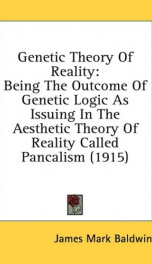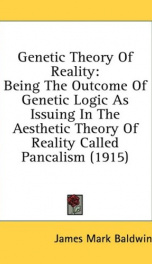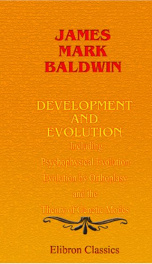elements of psychology

Purchase of this book includes free trial access to www.million-books.com where you can read more than a million books for free. This is an OCR edition with typos. Excerpt from book: 8 UBJECT-MA TTER. expression will be seen, upon examination, to refer properly to the physiological accompaniment of thought. For example, we speak of the localization of speech in Broca's convolution ; but it is the brain modification which accompanies speech that is there located. Suppose all our words were impressed upon the brain, making it, as some seem to consider it, a kind of magazine of photographic plates, still the great mental essential, consciousness, might be wanting. II. Relation to measurement: mental facts, unlike physical facts, cannot be directly measured. For the measurement of external magnitudes extension affords us at once definite and constant standards ; but for states of consciousness we have no such exact means of procedure. The fact that mental events are subjective in their nature makes them liable to all the uncertainties of subjective estimation. This difficulty is further enhanced by the consideration that the mental fact is always associated with a physical fact, and it is impossible to isolate the former. This is seen in both the cases in which physical measurements seem to be most successful : in the measurement of the duration of mental acts and of the quantity or intensity of sensations. In the former case we proceed upon the supposition that time standards can be employed for mind as space standards for body : but the time occupied by the cerebral event is so interwoven with that of the mental that it has proved impossible to separate them. III. Mental states are distinguished from physical states in the means through which they are known. As modifications of matter, physical facts are known through the senses. Bodily functions are thus laid open to the gaze of the physician and the anatomist. The brain itself may be observed in its a...
Info about the book
Author:
Series:
Unknown
ISBN:
0554006340
Rating:
3.5/5 (3)Your rating:
0/5
Languge:
English
Users who have this book
Users who want this book
What readers are saying
What do you think? Write your own comment on this book!
write a commentif you like elements of psychology try:
Do you want to read a book that interests you? It’s EASY!
Create an account and send a request for reading to other users on the Webpage of the book!







